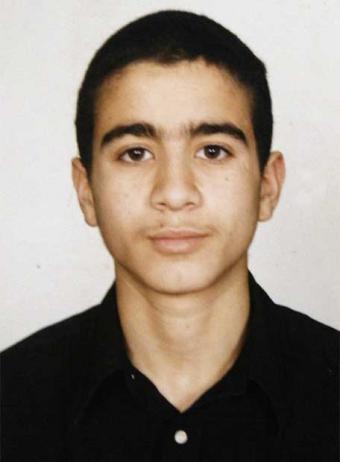
Today, the hearing of Omar Khadr in Guantanamo begins. The United States accuses him of murder. The charge refers to a case from the Second World War.
A state of emergency has arisen in Guantanamo: The hearing of the prisoner Omar Khadr begins. Khadr was arrested in July 2002. At that time, a U.S. soldier was killed by a hand grenade in a firefight in eastern Afghanistan. After the fight, the military found severely injured 15-year-old Omar Khadr under the ruins. It is uncertain what role he played during the battle. The U.S. accused him of murder and brought him to Guantanamo Bay in October 2002.
Nearly eight years later, there has still been no progress. A hearing is planned for July — in front of a military tribunal, even though Barack Obama spoke out against it clearly when campaigning for office. Today is the start of an about eight-week-long hearing. The tribunal will not allow the confessions of the now 23-year-old Khadr to be considered as evidence. Khadr was tortured.
Khadr’s lawyer, Barry Coburn, wants to see Khadr free as quickly as possible. He relies on the fact that the U.S. has never condemned a 15-year-old child soldier before.
The spokesman for the charge, Mike Berrigan, cites a 15-year-old member of the Hitler Youth, who was condemned in 1945 by a British military court, as precedent. In regard to this, a condemnation of the “enemy combatant” Khadr would be perfectly legitimate.
State of Emergency During Hearing
Journalists will be present in the courtroom, but entering or leaving the hall is permitted only when accompanied by soldiers. Even the hallway to the bathroom is monitored by the U.S. Army. The military seems not amused by the publicity of the process.
The hearing is politically charged. Obama abandoned the law on military tribunals that George W. Bush had established in 2006, and enacted a new one in 2009. One of the key points: more rights for prisoners. Should Khadr’s confessions under torture be allowed as part of the process, Obama will have to endure accusations of pursuing Bush’s controversial policy toward Guantánamo.

Leave a Reply
You must be logged in to post a comment.